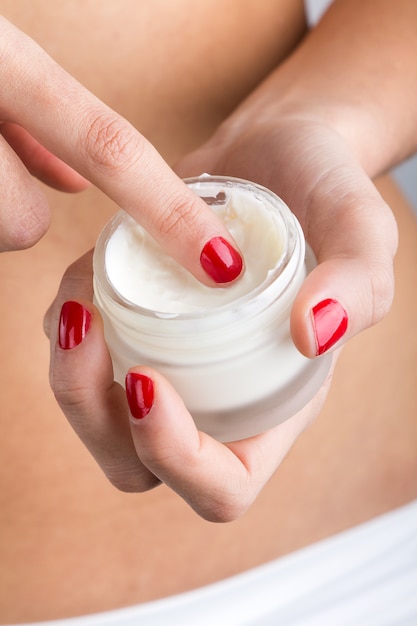
Dealing with eczema? Nutritionist Olga Hamilton suggests that certain foods can help reduce the inflammation causing dry, itchy, and flaky skin. Eczema is a chronic condition that leaves the skin feeling sore and uncomfortable. Statistics show that one in five children and one in twelve adults in the UK suffer from eczema. While your diet isn’t the direct cause, certain foods can trigger flare-ups.
Research indicates that food can make eczema worse within minutes or hours. Hamilton shares five dietary tips to help manage eczema:
1. Probiotics: These live microorganisms support your immune system and inhibit harmful gut bacteria. Common strains like Lactobacillus and Bifidobacterium are found in yogurt, kefir, raw cheese, natto, tempeh, miso, kombucha, sauerkraut, and kimchi. Consuming probiotics can help prevent immune dysfunction and reduce inflammation, key factors in eczema. Try adding small amounts of fermented foods daily, like a tablespoon of sauerkraut in your salad or 200 grams of yogurt as a snack.
2. Prebiotics: These are non-digestible carbs that help feed good gut bacteria. They help enhance the effectiveness of probiotics against stomach acid. Foods rich in prebiotic fibers include beans, legumes, Jerusalem artichokes, leeks, shallots, chicory, asparagus, mushrooms, garlic, and onions. Aim for three portions daily, such as 80 grams of vegetables or 120 grams of cooked legumes.
3. Liver-Friendly Foods: Poor liver function can lead to toxin buildup, causing inflammation and eczema. Consuming cruciferous vegetables like cabbage, kale, broccoli, cauliflower, and Brussels sprouts helps the liver detoxify, reducing inflammation and easing eczema symptoms. Aim for two portions of these veggies daily, in any form—cooked, raw, or fermented.
4. Turmeric: This popular Asian spice, containing curcumin, has strong anti-inflammatory and antioxidant properties. It can help restore depleted levels of glutathione, boosting the immune system and reducing eczema symptoms. Research has shown that turmeric creams can significantly alleviate eczema-related scaling, thickening, and itching.
5. Vitamin D: Essential for immune system function, vitamin D is produced in the skin through sun exposure and is found in foods like wild oily fish, vitamin D-enriched mushrooms, and grass-fed butter. Studies show that people with eczema often have lower levels of vitamin D. Supplementing can help regulate inflammation, benefiting those with immune-related conditions like eczema. The UK reports that one in five people has low vitamin D levels.
By incorporating these dietary changes, you might find relief from the symptoms of eczema and improve your overall skin health.

